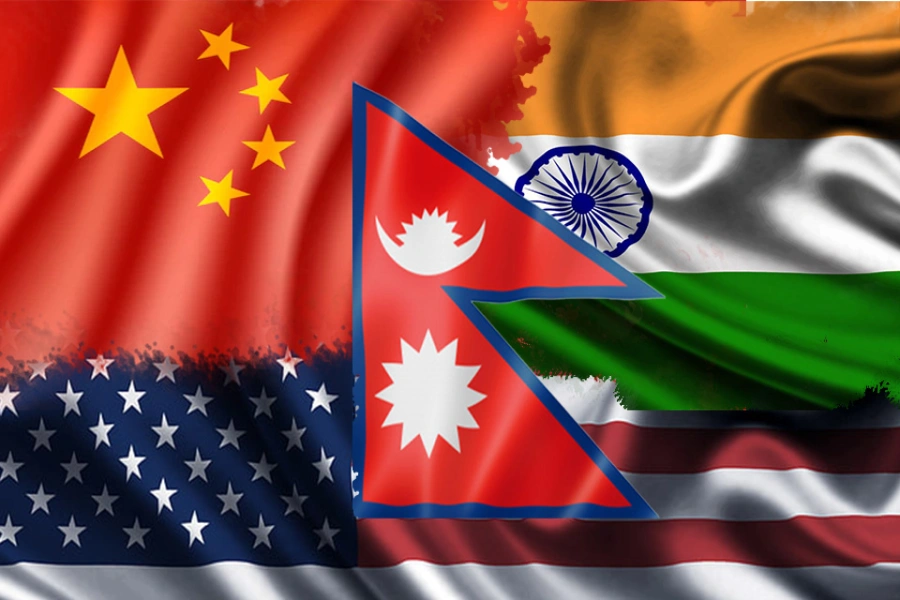Nepal govt provides annual subsidy of Rs 30 billion for chemical fertilizers
KATHMANDU, Aug 11: China has shown interest in investing in a chemical fertilizer factory in Nepal. Despite discussions over nearly four decades, the project has not yet come to fruition. However, Chinese Ambassador to Nepal, Chen Song, has stated that the Chinese government is ready to help Nepal build a fertilizer plant under the Belt and Road Initiative (BRI).
During a meeting with the editors of major Nepali media outlets on Thursday evening, the Chinese ambassador stated that China is prepared to assist in operating a fertilizer plant in Nepal by utilizing the country's abundant electricity and water resources.
He suggested that using fuels like coal to run the factory would perpetuate dependency and cause pollution. Instead, he recommended utilizing Nepal's available water and electricity for fertilizer production. He emphasized that sufficient electricity and water are available in Nepal for such a factory.
Ambassador Chen is confident that the fertilizer plant could be operational within a year if the Investment Board Nepal (IBN) approves. However, he also expressed concerns that “certain elements” in Nepal might obstruct the process.
With Nepal currently importing chemical fertilizers worth about Rs 40 billion annually, China's interest in establishing a fertilizer plant is viewed with significant importance. Despite numerous discussions and deliberations on the matter, the establishment of the plant has not yet been realized.
China to assist Nepal in establishing fertilizer plant: Ambassa...

The government has been providing an annual subsidy of about Rs 30 billion for chemical fertilizers. For the fiscal year 2023/24, the government allocated Rs 30 billion for this purpose. In the current fiscal year 2024/25, Rs 27.95 billion has been allocated. However, this budget appears to be insufficient.
Ambassador Chen has stated that the Chinese government is prepared to complete all the work related to establishing the factory within the next year. China, as well as India, is interested in investing in chemical fertilizer factories in Nepal. With farmers facing delays in receiving fertilizers, there is an opportunity to produce them domestically. The Nepal Oil Corporation (NOC) has also initiated discussions on the establishment of a chemical fertilizer factory.
Dr Chandika Prasad Bhatt, the executive director of the NOC, said that preparations are underway to advance the chemical fertilizer factory project as a 'dream' initiative. He also stated that discussions are ongoing with the Indian Oil Corporation (IOC) regarding the project. Although no formal agreement has been reached, the IOC, which is owned by the Indian government, has expressed interest in investing.
With about half a billion rupees spent annually on importing chemical fertilizers, establishing a domestic plant is expected to help reduce the country's trade deficit. Since setting up a chemical fertilizer factory would require more than Rs 100 billion, foreign investment is necessary.
The IBN had proposed various models for establishing the fertilizer industry. Some suggested operating the chemical fertilizer factory using electricity, while others recommended setting up the industry based on natural gas.
The government has not yet made a formal decision on what type of factory to operate. Stakeholders have indicated that, due to the need for an investment of over Rs 100 billion, the fertilizer factory could be established through foreign investment, private sector involvement, and government funding.
A report prepared after a study conducted a few years ago proposed that a chemical fertilizer factory could be established using natural gas with an investment of about Rs 103 billion. This cost may have increased now. Some argue that establishing a fertilizer factory based on water electrolysis technology would be more expensive, suggesting that setting up a natural gas-based industry would be more suitable.
Another view holds that to increase electricity consumption in Nepal, a chemical fertilizer industry based on water and electricity should be established. It was estimated that setting up a factory based on water electrolysis technology would cost Rs 189 billion. There is an opinion that establishing a factory based on thermocol technology would be environmentally unsuitable.
The Ministry of Agriculture and Livestock Development prepared a project plan for the chemical fertilizer factory. The plan outlines that 65 percent of the total cost would be covered by loans, and the remaining 35 percent would be invested by the government, private sector, and foreign partners.
In 2020, the Ministry of Agriculture and Livestock Development recommended establishing a chemical fertilizer factory using the PPP model. A team comprising the Secretary of the Ministry of Finance, the Secretary of the Ministry of Industry, Commerce, and Supplies, and the Secretary of the Ministry of Agriculture prepared a report on operating a chemical fertilizer factory in 2020.
In the fiscal year 2013/14, the then finance minister Shankar Prasad Koirala announced a budget for conducting a detailed feasibility study for establishing a chemical fertilizer factory. Similarly, in the budget for the fiscal year 2016/17, the then Finance Minister Bishnu Paudel stated that a policy to encourage domestic and foreign investors to open a chemical fertilizer factory had been adopted.
Similarly, replacing the budget introduced by Paudel, the budget brought by the then finance minister Janardan Sharma also mentioned the establishment of a chemical fertilizer factory in Nepal. Government officials state that a study for establishing a chemical fertilizer factory in Nepal was conducted as early as 1984. At that time, the Japanese International Cooperation Agency (JICA) conducted the study. Globally, natural gas, thermocol, and water electrolysis technologies are commonly used for chemical fertilizer production.
Studies were conducted on models using gas, electricity, and coal. The IBN's study report suggested establishing chemical fertilizer factories in Dhalkebar in Dhanusha, Jaljale in Udayapur, and Bardaghat in Nawalparasi.
Indian company Development Corporation (Karnataka) Limited, along with the Institution of Agricultural Technologists (IAT) and Nepali partner Shah Consult International, conducted a feasibility study and prepared a report.
Operating a fertilizer industry would help reduce the trade deficit and ensure that farmers receive fertilizers on time. Currently, the government faces criticism for failing to provide fertilizers during the planting season.






































